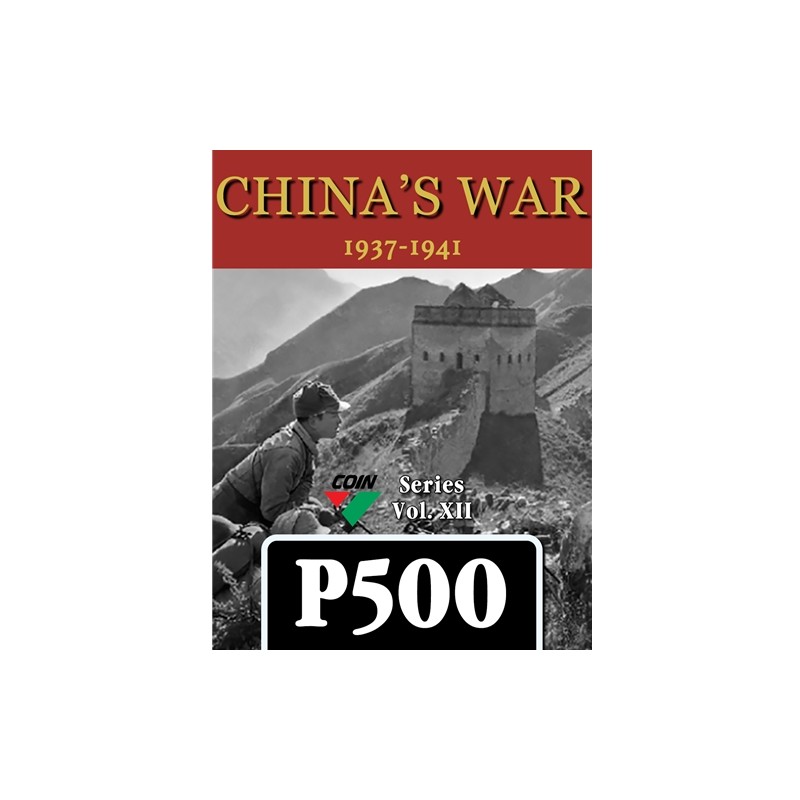July 8, 1937: a nighttime skirmish at the Marco Polo Bridge near Beijing erupts into an invasion and occupation of China by the Imperial Japanese Army that would not end until 1945. Western sources call it the “Second Sino-Japanese War”; in China, it is the “War of Resistance”; and in Japan, it is blandly referred to as “the China Incident.”

China’s War: 1937-1941 examines the first five years of the conflict, when China stood alone against the Japanese Empire. Each player takes the role of a Faction seeking to attack or defend the Republic of China: the aggressive Japanese, the harried Government (represented by the Guomindang party), the rebellious Chinese Communist Party, or the unruly, fractious Warlords who are obedient when convenient but have their eye on gaining state power. Using military, political, and economic actions and exploiting various events, players build and maneuver forces to influence or control the population, extract resources, or otherwise achieve their Faction’s aims. A deck of cards regulates turn order, events, victory checks, and other processes. The rules can run non-player Factions, enabling solitaire, 2-player, or multi-player games.
COMPONENTS
Players: 1-4 (full solitaire system)
Map: Area movement
Time scale: about 1 year per 12-card campaign

- One 22”x 34” mounted game board
- One deck of 52 playing cards
- 167 wooden playing pieces, some embossed
- 12 small pawns (6 red, 6 white)
- One full-color countersheet
- Rules Booklet
- Playbook
- 4 Faction Player Aid foldouts
- Cards, Player Aid, and Rules for the card-based solitaire opponent
- 1 Sequence of Play sheet
- 2 six-sided dice




Comentarios